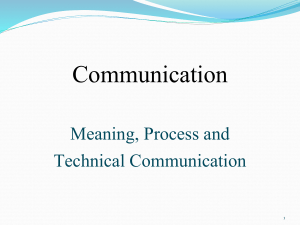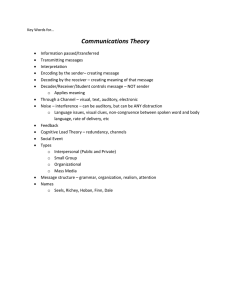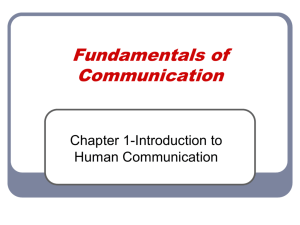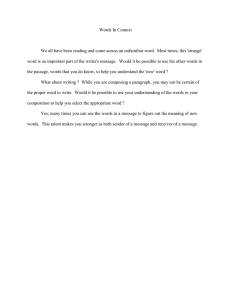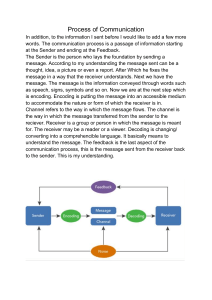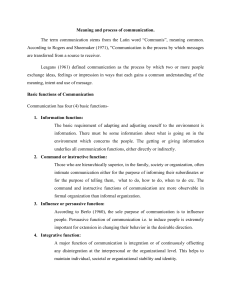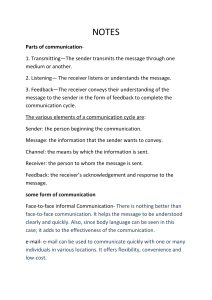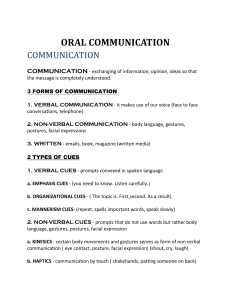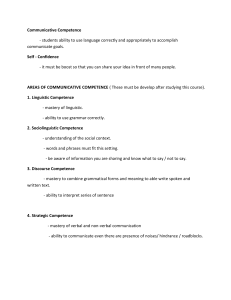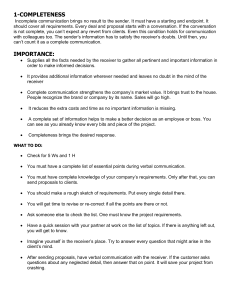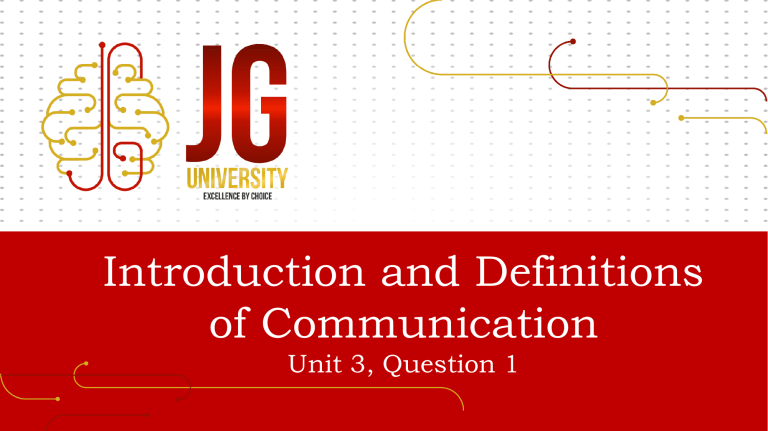
Introduction and Definitions of Communication Unit 3, Question 1 A few thoughts: • Have you ever had that experience during various events and instances, where you were unable to express your thoughts properly? • Has it happened that your words are misunderstood or you were unable to catch the sense or meaning of the idea transferred to you? Maybe, because: • The cause behind this could be unsuitable ways of communicating. • Suitable communication is the pillar for our personal as well as professional lives because all the relations are intricately woven through communication. Think about your daily life: • We talk to so many people in so many different ways. • Face to face communication, phone calls, text messages, social media, through signs and symbols and in many other ways. • What is the purpose of all these activities? Communication: The word ‘Communication’ is derived from the Latin word ‘Communis’ – which means ‘to share’ or ‘to exchange’. • It is a process to exchange feelings, facts, ideas or opinions. • Communication helps us to grow, learn and be aware of ourselves. • It helps us to be aware of our environment. • Communication can be between individuals, groups or organizations. When? • We are social animals and it is our very strong desire to remain in touch with others. • We constantly interact with other individuals. • We communicate in some form or the other during every single moment of our lives. Why? • Human beings are social animals and they need to communicate to others to feel loved, secured and accepted. • Communication is thus an important part of human existence. Is it easy? • Communication is not just sending messages. • It is much more detailed and complex. The Sender and the Receiver • The skill to communicate not only depends on the sender’s skill to convey his ideas and thoughts but it is equally important for the receiver to understand the received message in the exact way that the sender desires. However… • There are times when there have been arguments or quarrels due to misunderstandings or miscommunication. • Communication, thus, becomes an important part of our lives and becomes an essential part for the smooth function of human society. It is a key… • May it be at the personal level or professional, communication is the key for a better understanding of any relationship or any task. • Communication can solve many issues that assumptions cannot. Is it similar for all? • Communication can be done in different ways for different purposes and it has different objectives. • Thus, the ways to communicate differ from person to person and are situational. Definitions of Communication: ● The concept of communication would be clearer if we carefully examine some of the definitions presented by great authorities. Peter Little: • “Communication is the process by which information is transmitted between the individuals and/or organizations so that an understanding response results.” Keith Devis: • “Communication is the process of passing information and understanding from one person to another.” W.H.Newman & C.F. Summer Jr.: • “Communication is an exchange of facts, ideas, opinions or emotions by two or more persons.” Chappel & Read: • “Communication is any means by which thought is transferred from one person to another person.” Conclusion: • A careful analysis of above definitions helps us to conclude that communication is an exchange of information, ideas and emotions with the help of words, letters, symbols or messages which bring about common understanding and response.

